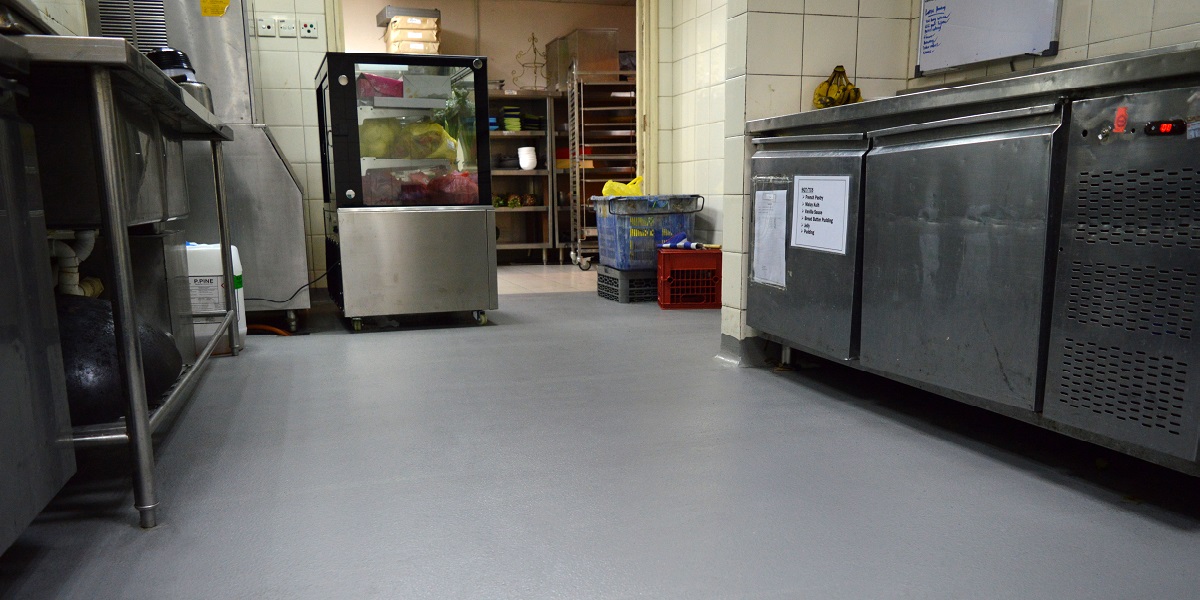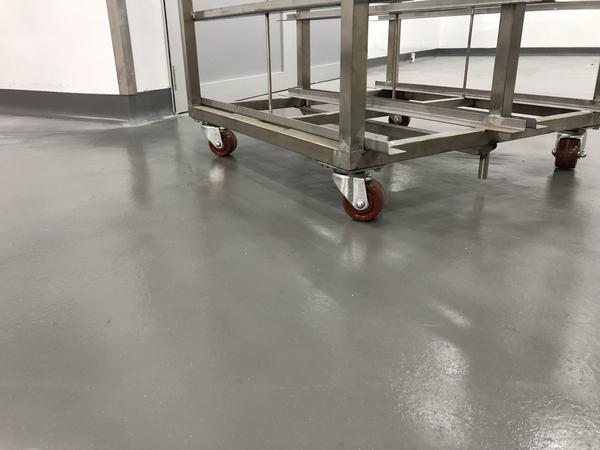Coping with heat in construction: Failproof flooring solutions

You may have seen our blog post on using sealing and bonding solutions in hot climates, and when it comes to flooring, heat can have a similar affect as it does for coating products – quickening cure times, making liquid solutions more fluid and causing tools to become clogged with curing product. But another consideration is choosing the best flooring solutions for areas that will be exposed to extreme heat, such as in oven rooms of food and beverage facilities. Here we consider potential solutions to this.
Polyurethane vs Epoxies for areas exposed to extreme heat
Hardwearing resin systems, epoxy and polyurethane, are typically used for busy food plants that subject their floors to physical impacts, point loading and traffic from heavy machinery and equipment. Although they are often talked about as the same product, they are actually two different types of floor coatings with their own distinct properties, especially when it comes to temperature resistance.
Polyurethanes (PU) provide superior heat, cold and thermal shock tolerance. Epoxies on the other hand are naturally more rigid and are able to move with a concrete substrate when exposed to heat fluctuations. To exemplify this, a standard epoxy coating has a heat resistance of up to 65°C, whereas some PU systems can tolerate 120°C.
Thermal shock resistance is a great benefit in food and beverage facilities where extreme temperature changes often occur on a daily basis. For example, when a room is steam cleaned, in areas where hot oven doors are being regularly opened or where there is the possibility of boiling substances spilling onto the floor.
Choosing a thick floor finish of around 9mm can also provide an effective barrier against the majority of extreme temperature situations, such as thermal cycling, where the floor’s temperature is gradually lowered or raised over time. In a similar way to concrete, Polyurethane’s thermal coefficient of expansion means that the floor finish will expand and contract at the same rate as the substrate, reducing the likelihood of cracks, debonding, delamination or bubbling.
It’s agreed, a best-in-class screed!
 To further protect flooring from the damaging effects of extreme heat, chemical or mechanical attacks, anti-corrosive vinyl ester coatings and lining materials can give the best-in-class protection. Such coatings can even withstand temperature of up to 185°C as well as thermal shock!
To further protect flooring from the damaging effects of extreme heat, chemical or mechanical attacks, anti-corrosive vinyl ester coatings and lining materials can give the best-in-class protection. Such coatings can even withstand temperature of up to 185°C as well as thermal shock!
Discover more about vinyl ester coatings or temperature resistance.
Whilst temperature resistance might be an important, but often secondary characteristic of many flooring solutions, for some products it is their sole purpose in order to keep buildings, and those who use them, safe in the event of disasters such as fires. Find out more in the next post in this series, as we turn up the heat on fire protection.









